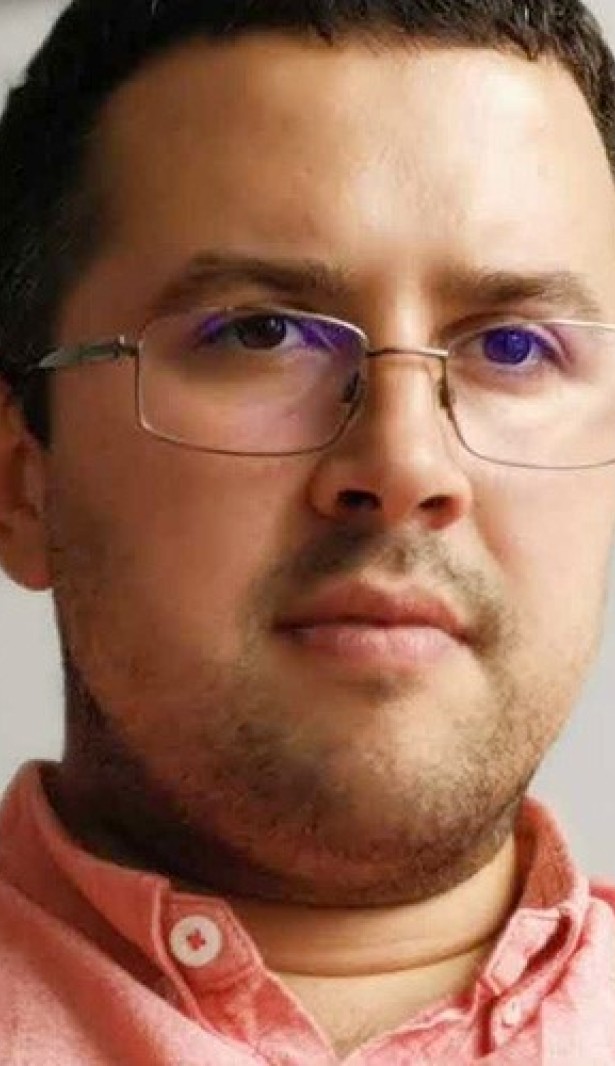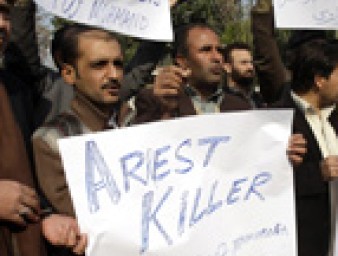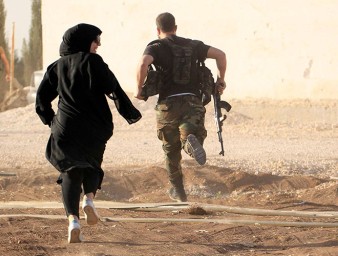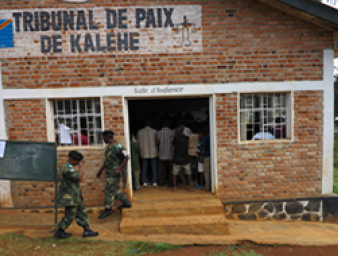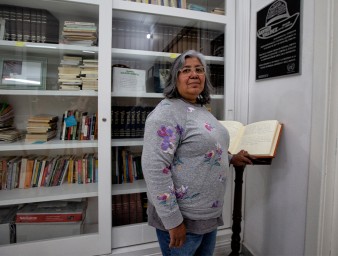Ukraine: justice pending for killings of journalists and activists
01 November 2019
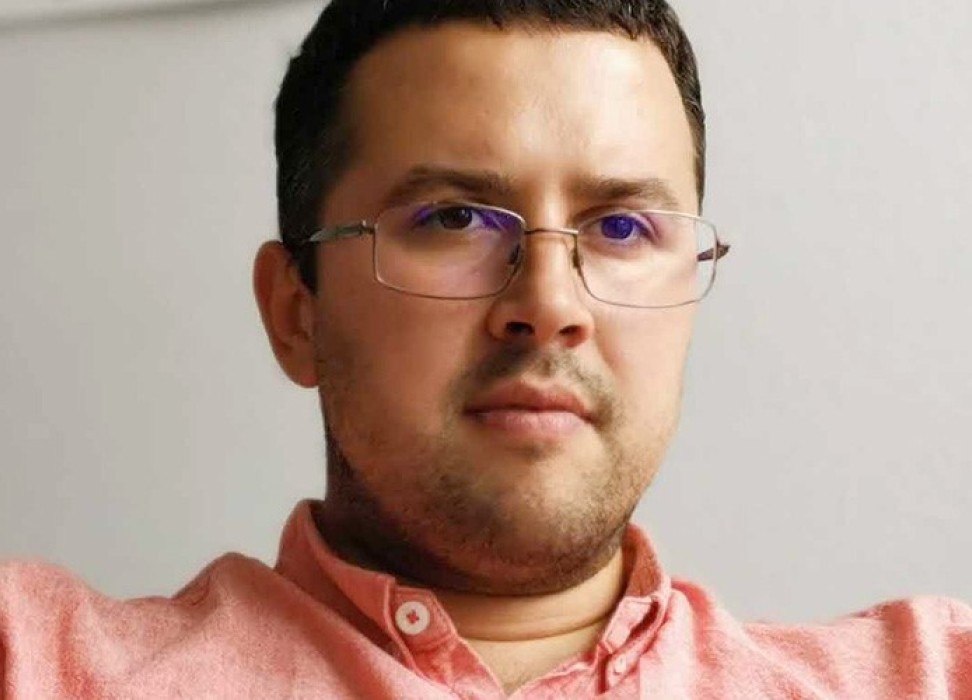
Amidst global insecurity for journalists and rights activists – and against the backdrop of the five-year long armed conflict in the east, the occupation of Crimea and all-pervading corruption - Ukraine has suffered from a string of attacks and killings. In most cases, impunity prevails. The UN Human Rights Monitoring Mission in Ukraine is calling for effective investigation into all cases. It is also supporting judicial and legal reforms in the country, and is advising the Government in ensuring accountability.
“He was unstoppable, irreconcilable”
“He was vocal on matters that others were afraid to cover, mainly on local corruption schemes. His persistence is already missing in the local media landscape,” said Valerii Makeev, a lawyer from Cherkasy, Ukraine, speaking about his late friend, journalist Vadym Komarov.
In June 2019, Komarov, 55, died after a brutal attack. “I have no doubts he was killed for his work as a journalist. It is very sad to see no results of the investigation of this murder.”
The lawyer spoke about the first days after the lethal attack when the police, he said, had failed to collect evidence. The journalist never regained consciousness after the attack and died after 45 days in a coma. “I thank the United Nations and the international community for attracting attention to his case, for speaking up. After these calls for effective investigation, the police requalified the case to murder, after initially looking at it as physical abuse that led to death.”
Gunshot, acid, car explosion: extreme attacks on media and civil society in Ukraine
The case of Vadym Komarov is at least the fourth killing of a journalist or activist in Ukraine in less than five years.
In 2015, two masked men shot journalist and writer Oles Buzyna, 45, near his house in Kyiv. Buzyna was vocal in criticising the government, particularly in relation to the Maidan events, the mass protests in 2013-2014.
A prominent investigative journalist Pavlo Sheremet, 44, was killed in a car bomb explosion in central Kyiv in 2016.
In 2018, a group of men attacked Kateryna Handziuk, 33, an anti-corruption advocate, with acid in Kherson. Following three months of surgeries and unendurable pain from the burns all over her body, she died in hospital.
And environmental activist Mykola Bychko, 23, was found hanged in 2018 in a forest in a village in Kharkiv region. He had been fighting water pollution, allegedly caused by local enterprises. The police closed the case, considering it a suicide. Human rights defenders claim that other evidence has not been taken into account and are calling for a new investigation.
The legal proceedings in these cases, while ongoing, raise a number of concerns.
Cases under investigation
After three years, Pavlo Sheremet’s killing is still under investigation, with no suspects identified. This October, Ukraine’s new President said the case should be resolved; the former incumbent made the same claim after the murder.
A year since the lethal acid attack against Kateryna Handziuk, a court sentenced the attackers to 3-6 years in prison, but there is still no accountability for those who organised the crime. Investigations and trials against local high-ranking officials, alleged masterminds of the acid attack, are moving slowly without visible results.
Trials lasting for years
In the case of Oles Buzyna’s killing, the investigation lasted almost three years. It identified two suspects and the indictment was sent to the court. Two men accused of this killing are closely connected with an extreme right-wing group whose members attended court hearings in Kyiv, pressuring the judges and the jury in some instances. The trial lasted for 1.5 years, when in May 2019 the presiding judge recused himself, saying he was under pressure. The trial then had to restart from scratch, delaying justice even further.
Human rights officers monitor trials throughout the country, on average 10 hearings per week. “While we see that Ukraine has been through a number of reforms of its justice system, we don’t see that fundamental issues of effective investigations and fair hearings by independent courts have been resolved. This unfortunately leaves a big accountability gap,” said Matilda Bogner, Head of the UN Human Rights Monitoring Mission in Ukraine.
Bringing change
The UN Human Rights Monitoring Mission works in support of state authorities in ensuring accountability, guaranteeing independence and security of the judiciary.
“We know we are not alone in countering impunity. Public statements, reports and advocacy by the UN Human Rights Monitoring Mission encourage us to be active, to rely on international standards, and reassure us that justice will be established,” said Sergiy Tomilenko, President of Ukraine’s National Union of Journalists.
International partners carry out trainings for Ukraine’s judiciary, police and prosecution based on the analysis and recommendations of the UN Human Rights Monitoring Mission. “Their reports provide us with detailed information about current developments in the country most relevant to our work in the area of civilian security sector reform,” said Ms. Rosalyn Sheehan, Deputy Head of Operations in the European Union Advisory Mission to Ukraine.
In 2019, following presidential and parliamentary elections, Ukraine has formed a new government. “We need to see more progress in the investigations of killings and violent attacks against journalists and civil society activists. By bringing perpetrators to account, the government will contribute to preventing future attacks. In a country with an active armed conflict and allegations of endemic corruption, the protection of journalists and activists who dare to speak out and inform the general public is key,” said Bogner.
Disclaimer. Since 2014, the Governmentis not in control of certain parts of its territory in the east, and the Russian Federation has occupied the Crimean peninsula in the south. While not the focus of this particular story, the situation with freedom of expression and the media in the self-proclaimed ‘Donetsk people’s republic’ and the self-proclaimed ‘Luhansk people’s’ republic,’ as well as in the occupied Crimea raises serious human rights concerns. More information on this is available in UN Human Rights reports on the human rights situation in Ukraine and in thematic reports on the human rights situation in Crimea.
1 November 2019
